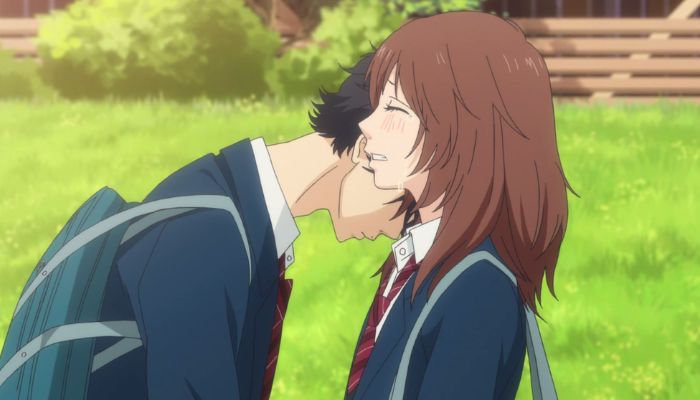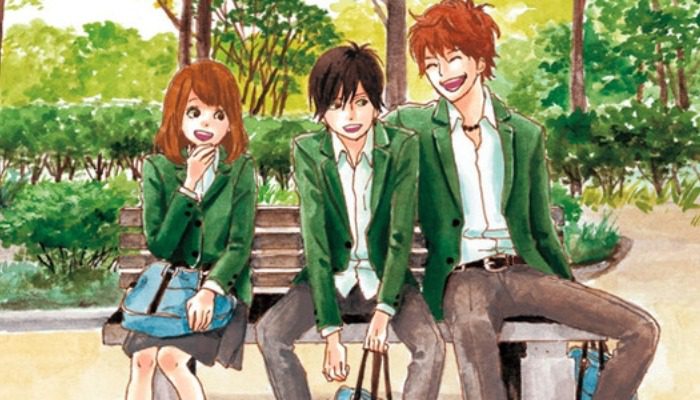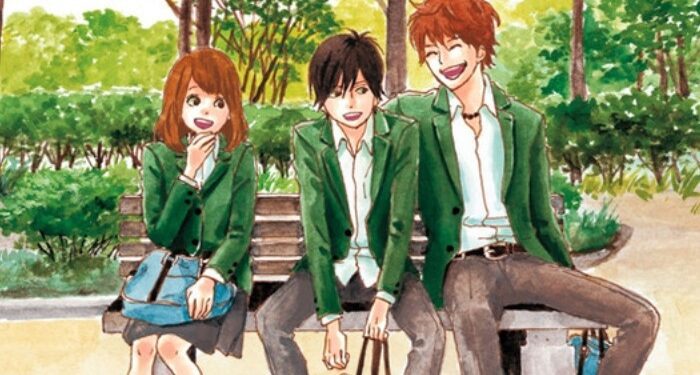In recent years, the world of manga has seen a remarkable evolution in its storytelling, particularly in the romance genre. For those looking to read online, these titles are easily accessible through various platforms, allowing you to dive into the stories that resonate with contemporary values.

The Importance of Challenging Toxic Masculinity
Toxic masculinity is a cultural concept that promotes certain traits as inherently male, often leading to emotional suppression, aggression, and dominance over others. This notion not only harms men but also negatively impacts their relationships with women and others around them. Manga has a unique ability to explore complex emotional landscapes, making it a powerful medium for challenging these stereotypes. By showcasing male leads who embrace their emotions and treat others with respect, these stories foster a healthier view of masculinity and relationships.
Exploring Complex Characters and Relationships
Many romance manga focus on the development of relationships between male and female characters, highlighting mutual respect, understanding, and vulnerability. The male leads in these stories often undergo significant character growth, moving away from the archetypal “strong, silent type” to more nuanced portrayals. They learn the importance of empathy, communication, and emotional expression, ultimately creating healthier dynamics with their partners.
Manga That Redefines Masculinity
Here are ten notable romance manga that feature male leads who challenge toxic masculinity:
I Want to Eat Your Pancreas
This poignant story revolves around an introverted male protagonist who discovers that a popular girl in his class is suffering from a terminal illness. As they form an unlikely friendship, he learns to confront his own emotional barriers. The male lead’s journey is one of self-discovery and vulnerability, highlighting the importance of expressing feelings and cherishing connections.
My Dress-Up Darling
The story follows Wakana Gojo, a boy with a passion for traditional dolls, who crosses paths with Marin Kitagawa, a lively girl interested in cosplay. Their relationship blossoms as they collaborate on costumes, with Gojo breaking stereotypes about masculinity through his willingness to embrace his interests. The series beautifully portrays how a supportive partnership can help individuals grow and accept themselves.
Horimiya
This manga delves into the lives of Hori and Miyamura, two high school students who appear to be vastly different at first glance. Hori is popular, while Miyamura is introverted and seemingly brooding.
As they get to know each other, both characters reveal their insecurities and vulnerabilities. The male lead, Miyamura, challenges traditional masculine ideals by expressing his softer side and embracing his unique qualities.
Kimi ni Todoke
The story centers around Sawako Kuronuma, a misunderstood girl often compared to a horror character. Shota Kazehaya, a popular and friendly boy, sees past her exterior and helps her navigate social situations.
Kazehaya’s open-mindedness and kindness dismantle the notion that boys must be tough or indifferent. Their relationship emphasizes communication and understanding, breaking down emotional barriers.
Kaguya-sama: Love Is War
In this comedic yet insightful series, the male lead, Miyuki Shirogane, is the student council president who is deeply in love with his vice president, Kaguya Shinomiya. Instead of adhering to traditional romantic tropes, both characters engage in psychological warfare to win each other’s affection.
Shirogane’s emotional intelligence and willingness to express his feelings in unconventional ways challenge the stereotypes surrounding masculinity.
Ao Haru Ride
This manga follows the story of Yoshiko, a girl whose high school crush re-enters her life years later. The male lead, Fukuhara, is portrayed as sensitive and sincere, breaking away from the typical aloof romantic interests.
His genuine approach to love and relationships showcases that vulnerability and honesty are strengths, promoting a healthier image of masculinity.
Boys Over Flowers
While it includes some classic romance tropes, the series also presents Tsukushi Makino, a strong female lead who stands up against the wealthy and arrogant boys known as the “Flower” group.
Tsukasa Domyoji, the male lead, undergoes significant character development, learning from Tsukushi’s strength and independence. His transformation reflects a shift away from toxic behaviors, emphasizing growth through love and respect.
Your Name
This critically acclaimed film, adapted into a manga, explores the connection between two teenagers, Taki and Mitsuha, who mysteriously swap bodies.
Their journey encourages emotional openness and vulnerability. Taki’s experiences help him challenge societal expectations regarding masculinity, ultimately emphasizing the significance of empathy and understanding in relationships.
Sweetness and Lightning
This heartwarming series follows a single father, Kohei, who learns to cook for his daughter with the help of one of his students, Aoi. Kohei’s role as a nurturing parent challenges the stereotype of fathers being distant or uninvolved.
His journey toward emotional openness and bonding through cooking illustrates that masculinity can coexist with tenderness and care.
Ouran High School Host Club
In this beloved series, the male leads are part of a host club catering to female clients. Tamaki Suoh, the charismatic host, often displays emotional sensitivity and openness that defies traditional masculine stereotypes.
His relationships with the other characters showcase a blend of humor and heart, illustrating that men can express affection and empathy while still being captivating.

Conclusion: A New Era of Romance Manga
The evolution of romance manga reflects changing societal attitudes toward masculinity and emotional expression. By featuring male leads who challenge toxic masculinity, these stories pave the way for healthier relationships and promote understanding among readers.
The characters in these manga not only entertain but also inspire discussions about what it means to be a man in today’s world.
As readers explore these titles, they can appreciate the depth and complexity of the characters while embracing the message that vulnerability and emotional expression are not signs of weakness, but rather traits of strong individuals.
Whether you’re new to manga or a seasoned fan, these titles are a great way to dive into narratives that challenge the status quo and foster meaningful conversations about love and masculinity.
If you’re interested in discovering these stories, check out various platforms where you can read manga online. The realm of romance manga continues to grow, offering even more opportunities to explore themes of love, respect, and emotional intelligence.
With the ongoing development of characters who defy traditional norms, the future of romance manga looks brighter than ever. Dive into these engaging stories and experience the evolution of romance manga for yourself.
See also: Why You Should Start Reading Manhwa if You Love Manga






